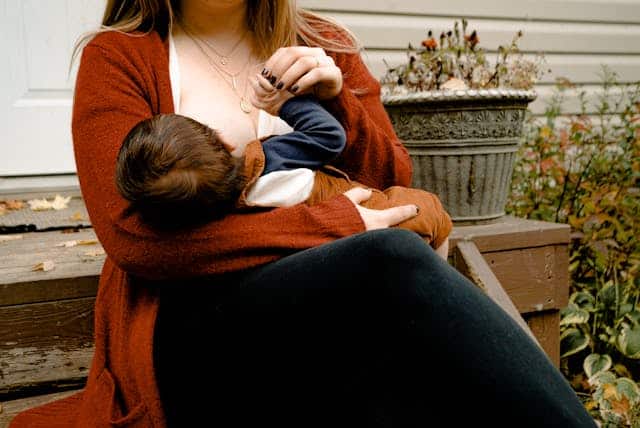If your baby refuses to breastfeed but happily accepts a bottle, you’re not alone. Many parents face this challenge during early infancy. While breastfeeding offers essential nutrients, immunity support, and bonding, some babies struggle with nursing. This can be due to latching issues, bottle preference, teething discomfort, or even environmental stress. Common solutions include using different breastfeeding positions, pumping milk to maintain supply, ensuring skin-to-skin contact, feeding in a calm space, and being patient. This guide covers all the major causes and offers strategies to help your baby return to the breast without distress.
What Is Breastfeeding and Why Is It Important?
Breastfeeding is the natural method of feeding your infant using milk produced by your body. It provides:
-
Complete nutrition in the first 6 months
-
Immune protection through antibodies
-
Hygienic, ready-to-serve feeding
-
Long-term health benefits for both baby and mother
According to the World Health Organization, exclusive breastfeeding is recommended for at least 6 months. However, fewer than 50% of infants globally meet this standard due to various hurdles.
Feeding Frequency: What’s Normal?
Feeding schedules change as your baby grows. Here’s a general guide:
| Baby Age | Feeding Frequency |
|---|---|
| Newborn | Every 2–3 hours |
| 2 Months | Every 3–4 hours |
| 6 Months | Every 4–5 hours |
Whether your baby prefers shorter, more frequent feeds or longer sessions, consistency is key. But what if your baby starts favoring bottles and resists nursing?
Why Does My Baby Prefer a Bottle Over Breastfeeding?
Breastfeeding is natural, but not always instinctive. Babies may gravitate toward bottles for several reasons:
1. Birth or Medical Complications
-
Premature birth or difficult delivery
-
Conditions like tongue-tie, cleft palate, or jaundice
2. Discomfort or Pain
-
Teething, oral thrush, or ear infections
-
Fever blisters or pain when resting on one side
3. Overstimulation or Stress
-
Noisy or chaotic feeding environment
-
Negative reactions during feeding, e.g., startling after a bite
4. Improper Latching or Positioning
-
Incorrect posture during feeds
-
Leaning your breast toward your baby instead of letting them self-latch
-
Lack of neck/back support
💡 Try adjusting the breastfeeding position to help your baby latch more naturally and comfortably.
What To Do If Baby Refuses Breastfeeding But Takes a Bottle?
It’s common to feel stressed or rejected when your baby avoids the breast. But don’t panic—this phase is manageable. Here’s what you can do:
✅ Maintain Your Milk Supply
-
Pump regularly to avoid engorgement
-
Express milk 8–10 times a day in the early weeks
-
Offer pumped milk through a spoon, dropper, or slow-flow bottle
✅ Keep Trying (Without Force)
-
Try feeding when the baby is sleepy or just waking up
-
Avoid pressuring the baby—pause and retry later if frustrated
✅ Test Multiple Breastfeeding Positions
-
Cradle hold
-
Side-lying
-
Football hold
-
Upright (Koala) hold
Each breastfeeding position can make latching easier depending on your baby’s comfort and anatomy.
✅ Reduce Distractions
-
Feed in a quiet, dimly lit space
-
Turn off the TV or loud sounds
-
Hold baby close with skin-to-skin contact
✅ Try a Warm Bath
Relax together in a warm bath. Sometimes, the sensory closeness can naturally encourage your baby to latch again.
What If My Baby Bites During Breastfeeding?
If biting is an issue:
-
Stay calm
-
Gently insert your finger to break the latch
-
Say “No” firmly but without alarming your baby
Biting is often temporary and linked to teething or curiosity.
Signs Your Baby Is Hungry (Even If They Refuse the Breast)
Here’s how to tell if it’s time to feed, even if they’re rejecting nursing:
-
Lip licking or tongue movements
-
Rooting (turning toward the breast)
-
Hand-sucking
-
Open mouth movements
-
Fussiness or restlessness
-
Chewing on toys or blankets
Who Should Choose Bottle-Feeding Over Breastfeeding?
While breast milk remains ideal, bottle-feeding may be more practical if:
-
The baby has a medical condition
-
You need to track the exact milk intake
-
You’re returning to work but want to keep milk in rotation
-
Nursing is causing physical or emotional distress
Note: Always use bottles with slow-flow nipples to mimic the breastfeeding pace.
Safety Tips & Health Considerations
-
Breastfeeding isn’t always easy, and that’s okay
-
Some babies need time and patience to re-latch
-
Don’t hesitate to consult a lactation consultant
-
The FDA does not regulate breastfeeding practices or natural supplements—always consult your pediatrician
FAQs
Why does my baby prefer a bottle instead of breastfeeding?
Bottles offer faster milk flow and may feel easier to latch. It could also stem from birth trauma, teething pain, or environmental stress.
How do I get my baby to breastfeed again?
Try feeding while sleepy, use skin-to-skin contact, switch breastfeeding positions, and offer feeds in a calm, distraction-free space.
Is it OK to just pump and bottle-feed?
Yes. Many moms choose to express milk and use bottles for flexibility. The key is to maintain milk supply and monitor your baby’s weight gain.
What if my baby refuses both breast and bottle?
This may signal illness or oral discomfort. Consult your pediatrician if refusal persists beyond 24 hours.
What are the best breastfeeding positions for re-latching?
Try the football hold, cradle hold, or side-lying. Let your baby self-latch while supported. Avoid pushing your breast toward their mouth.
Final Thoughts
If your baby refuses breastfeeding but takes a bottle, it’s not a failure—it’s a signal. With patience, support, and a few adjustments, many babies return to nursing. Monitor their nutrition, keep your milk supply steady, and seek professional guidance when needed. Every baby is different, and your journey is valid, whichever path you choose.

